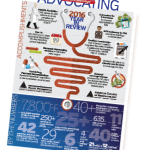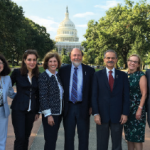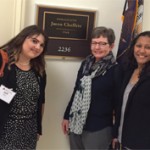WASHINGTON, D.C.—“Regardless of where we are on the political spectrum, we have to get engaged,” said Sen. Tim Hutchinson, senior director, Greenberg Traurig LLP, Washington, D.C., speaking at the 2016 ACR/ARHP Annual Meeting. As a former U.S. senator from Arkansas, Sen. Hutchinson talked about the importance of members in such organizations as the ACR to…







